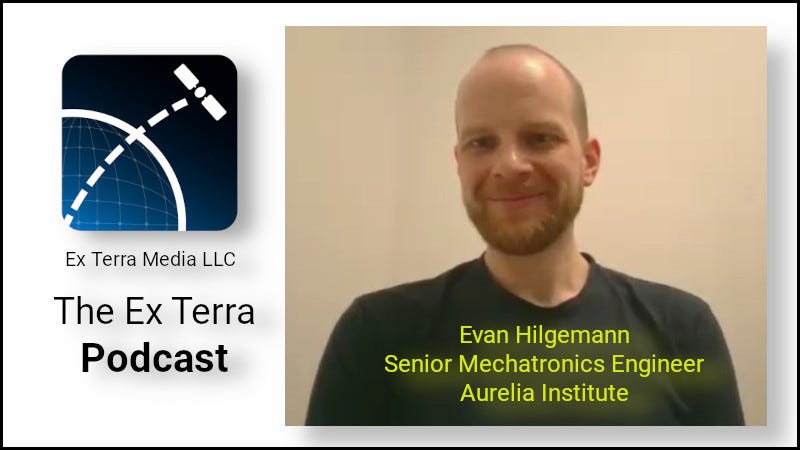The Aurelia Institute is a nonprofit organization based in Cambridge, Massachusetts, dedicated to advancing humanity's future in space through research, education, and policy development. Their mission focuses on creating scalable space habitats, fostering public engagement with space exploration, and addressing the ethical and societal implications of life beyond Earth.
"Once they're in space they can form space stations, they're reusable, they're replaceable, and they can be used to form much larger structures.”
Evan Hilgemann, Aurelia Institute
The TESSERAE Project is a modular, self-assembling space architecture system designed to autonomously construct habitats in microgravity environments.
The institute also offers an educational platform called the Aurelia Academy.
On this edition of The Ex Terra Podcast, Tom Patton talks with Evan Hilgemann, Senior Mechatronics Engineer for The Aurelia Institute.
The TESSERAE project will use a system of tiles that will autonomously connect to one another using magnets to create a unique space habitat.
"Once they're in space they can form space stations, they're reusable, they're replaceable, and they can be used to form much larger structures ... than you can just fit into that launch fairing. So to form those very large spaces in orbit, you have to go to some kind of on-orbit assembly or construction. It's not something you can just launch from the ground with very large rockets."
These structures aim to support human life, scientific research, and other activities in Low-Earth Orbit.













